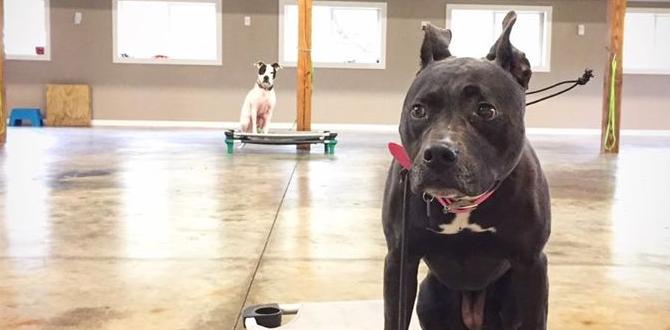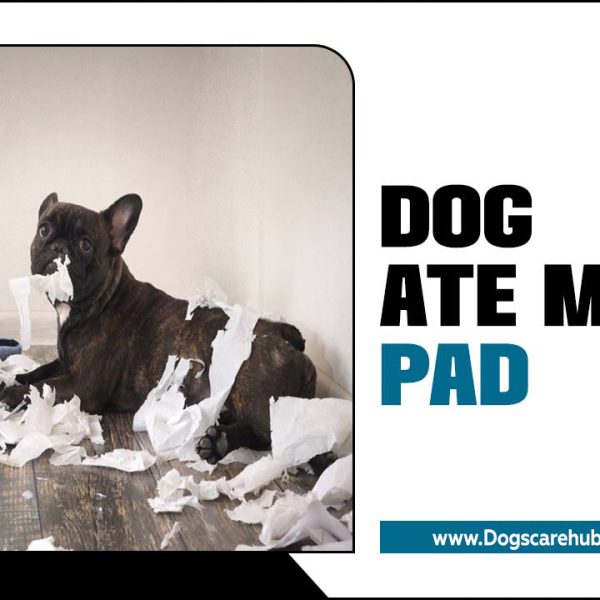Have you ever heard a dog barking at night in a crate? It can be loud and distracting. Imagine trying to sleep while your furry friend is howling away. Why does this happen? Dogs can bark for many reasons, and nighttime can be the trickiest time for them.
Many new puppy owners experience this. You might wonder if your dog is scared, lonely, or just being noisy. Did you know that puppies often feel anxious when left alone? That’s why they bark. Some dogs even bark because they want to play or need to go outside. It’s their way of telling you something!
In this article, we will explore what causes dogs to bark at night in their crates. We’ll also share tips to help keep your pup calm. By addressing their needs, you can enjoy peaceful nights while ensuring your dog feels safe and happy. Curious to learn more? Let’s dive in!
Understanding Dog Barking At Night In Crate: Causes And Solutions

Understanding Dog Barking at Night in Crate
Many dog owners face the challenge of their pet barking at night in a crate. This behavior can signal fear, boredom, or a need for attention. Knowing why dogs bark helps owners find solutions. Establishing a routine can create a sense of security. Also, make sure the crate is cozy and inviting. Did you know that puppies often bark more at night? Understanding these reasons promotes harmony for both dogs and their owners, leading to better sleep for everyone.Reasons for Dog Barking at Night
Instinctual behaviors and natural barking tendencies. Anxiety and fear factors contributing to nighttime barking.Dogs bark at night for many reasons. One big reason is their natural barking instincts. It’s like their way of chatting with the moon! They might also feel anxious or scared, especially in a new place like a crate. If your pup barks at night, it could be due to fear of being alone or hearing strange noises. Think of it as their nighttime alarm clock, except it’s set to “bark!”
| Reason | Description |
|---|---|
| Instinct | Dogs bark to communicate, just like we talk to each other! |
| Anxiety | Some pups feel lonely in their crate and bark to let you know. |
| Fear | Strange noises can make dogs feel nervous, leading to barking. |
Understanding Your Dog’s Needs
Importance of mental and physical stimulation. Assessing potential discomforts in the crate environment.Dogs need both mental and physical exercise to feel happy. Without it, they can get bored and anxious. Interactive play can help tire them out. Regular walks or games keep their minds sharp, too. Also, check if your dog’s crate is comfy. If the space is too tight or noisy, they may feel scared. Consider these points for a calmer night:
- Enough room to stand and turn.
- Soft bedding to relax.
- Quiet area to sleep peacefully.
Why do dogs bark at night in crates?
Dogs may bark at night due to boredom, lack of comfort, or feeling lonely. Providing proper exercise and a cozy crate can help reduce this barking.
Crate Training Techniques
Effective crate training methods to minimize barking. Positive reinforcement strategies for crate comfort.Training your dog to love their crate can make nighttime much quieter and cozier! Start with positive reinforcement. Reward your pup with treats when they enter the crate calmly. It’s like giving them a ticket to their own little hotel room! Use toys to make the crate fun, turning it into a personal clubhouse. Consistency is key! Practice regularly so your furry friend knows what to expect. Remember, happy dogs bark less—unless they’re dreaming of chasing squirrels!
| Technique | Description |
|---|---|
| Positive Reinforcement | Reward your dog for calm behavior in the crate. |
| Consistent Schedule | Use a regular routine to ease anxiety about crate time. |
| Enriching Environment | Provide toys and comfy bedding to make the crate inviting. |
Establishing a Nighttime Routine
Creating a consistent bedtime routine for your dog. The role of exercise and play in reducing nighttime barking.Creating a bedtime routine can be a game changer for your dog. Dogs love patterns, much like kids. Start with a fun play session to help burn off that extra energy. A happy dog is less likely to bark at night! Try this routine:
| Time | Activity |
|---|---|
| 7 PM | Playtime (Fetch or Tug-of-war) |
| 8 PM | Walk (30 minutes) |
| 9 PM | Calm time and snuggles |
| 9:30 PM | Bedtime in the crate |
This routine includes exercise and bonding, which can help reduce nighttime barking. Remember, a tired dog is a quiet dog. And if they’re too cute to stay quiet, maybe give them a squeaky toy for a laugh! 🐾
In summary, routine and exercise can lead to peaceful nights. Happy dogs sleep better!
Addressing Anxiety and Stress
Identifying signs of anxiety in dogs. Techniques to reduce separation anxiety and promote calmness.Many dogs show signs of anxiety. These can be barking, pacing, or hiding. To help your dog feel calm, try these techniques:
- Create a safe space for them.
- Use calming music or white noise.
- Practice short separations so they get used to being alone.
- Reward them when they stay calm in the crate.
With patience and love, you can help reduce their stress. Remember, a calm dog is a happy dog!
What are signs of dog anxiety?
Signs include excessive barking, drooling, and hiding. Some dogs may also chew furniture or dig. Look for changes in their behavior.
How can I help my dog with separation anxiety?
Try calming collars or toys. You can also train them to stay alone for short times. Gradually increase the time apart.
When to Seek Professional Help
Indicators that professional training or veterinary guidance is needed. Resources for finding dog trainers and behaviorists.Is your furry friend barking like a little alarm clock at night? It may be time to seek help if their barking is non-stop and driving you to the edge of sanity. Indicators such as excessive barking, signs of distress, or sleepless nights might mean your pup needs a professional. Look for a trainer who specializes in barking issues. They can help uncover what’s bothering your dog. And remember, it’s okay to ask for help! You’re not alone in this barking adventure.
| Signs Your Dog Needs Help | What to Do |
|---|---|
| Excessive Barking | Find a professional trainer. |
| Distress or Anxiety | Consult a veterinarian. |
| Disruption of Sleep | Consider doggy behavior specialists. |
Conclusion
In conclusion, if your dog barks at night in their crate, stay calm. Understand that they might feel lonely or anxious. Provide comfort by keeping the crate cozy. Practice training to help them adjust. Always be patient and consistent. If barking continues, consider talking to a vet or a trainer for more guidance. You and your pup can enjoy peaceful nights together!FAQs
What Are The Common Reasons For A Dog Barking At Night While In Its Crate?Dogs bark at night in their crates for several reasons. They might feel scared or lonely. Some dogs hear noises outside that make them bark. Others may need to go to the bathroom. Lastly, they may want to get your attention.
How Can I Help My Dog Feel More Comfortable In Its Crate To Reduce Nighttime Barking?To help your dog feel more comfortable in its crate, we can make it cozy. Add a soft blanket or a favorite toy. Spend time near the crate during the day so your dog gets used to it. You can also give treats when your dog goes inside. This helps your dog see the crate as a safe and happy place.
Are There Specific Training Techniques To Address Excessive Barking At Night In A Crate?Yes, there are ways to help your dog stop barking at night in their crate. First, make sure your dog has enough exercise during the day. We can play and take them for walks. Next, stay calm and quiet when they bark. If they keep barking, wait until they stop before giving them attention. Finally, use a cozy blanket or toy to help them feel safe and calm in their crate.
What Role Does Exercise And Mental Stimulation Play In Minimizing Nighttime Barking In Dogs?Exercise helps your dog use up extra energy. When dogs get tired, they are less likely to bark at night. Mental stimulation, like puzzle toys or training, keeps their minds busy. A happy and tired dog will bark less. So, play with your dog every day to help them sleep better at night!
Should I Be Concerned About My Dog’S Nighttime Barking, Or Is It A Normal Behavior?Nighttime barking can be normal for dogs. Sometimes, they bark at noises or want attention. However, if it happens a lot and bothers you, it could be a problem. You can try to figure out why your dog is barking. If you’re worried, ask a vet for help.
Meet Elyse Colburn, the devoted canine companion and storyteller behind the enchanting world of “Tales, Tails, and Adventures Unleashed.” A passionate dog enthusiast with a heart full of paw prints, Elyse Colburn shares heartwarming tales and insightful adventures, celebrating the joy, loyalty, and endless antics that make every dog a true hero. Join Elyse Colburn on this tail-wagging journey, where every post is a love letter to our four-legged friends.








